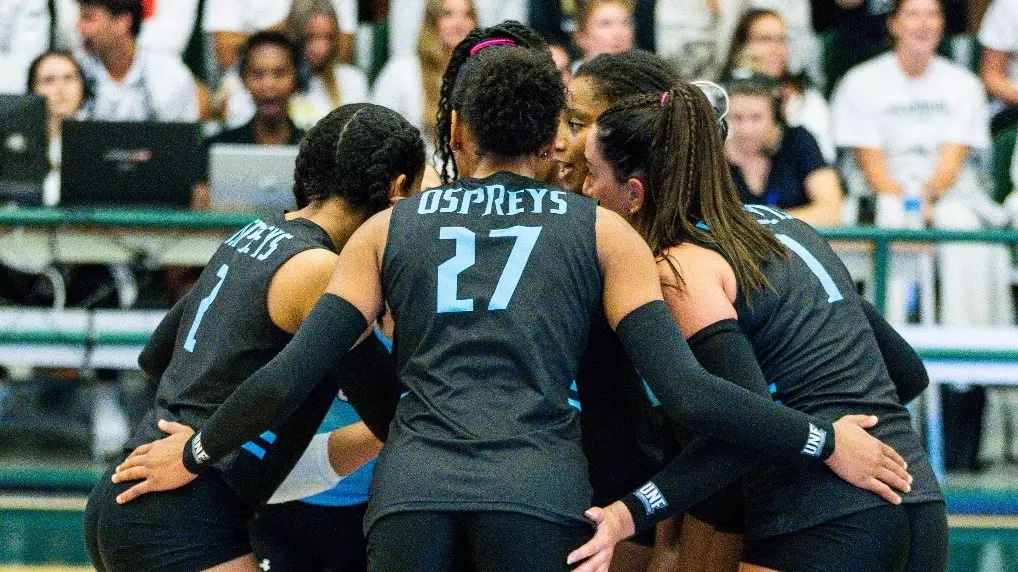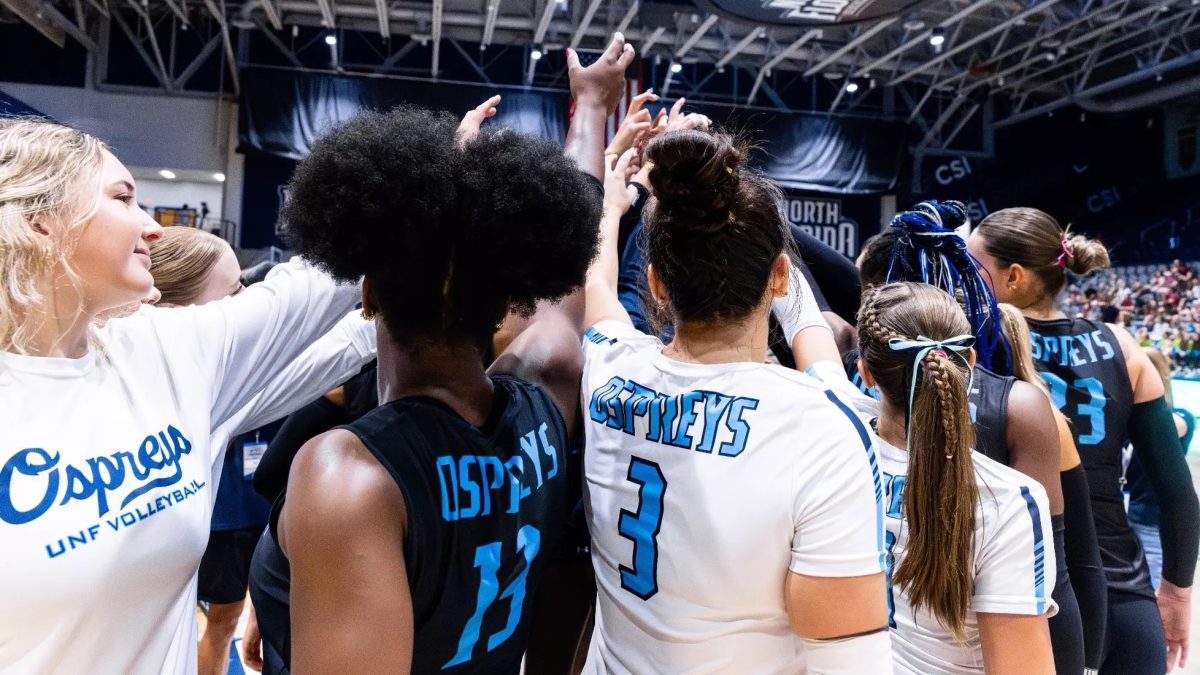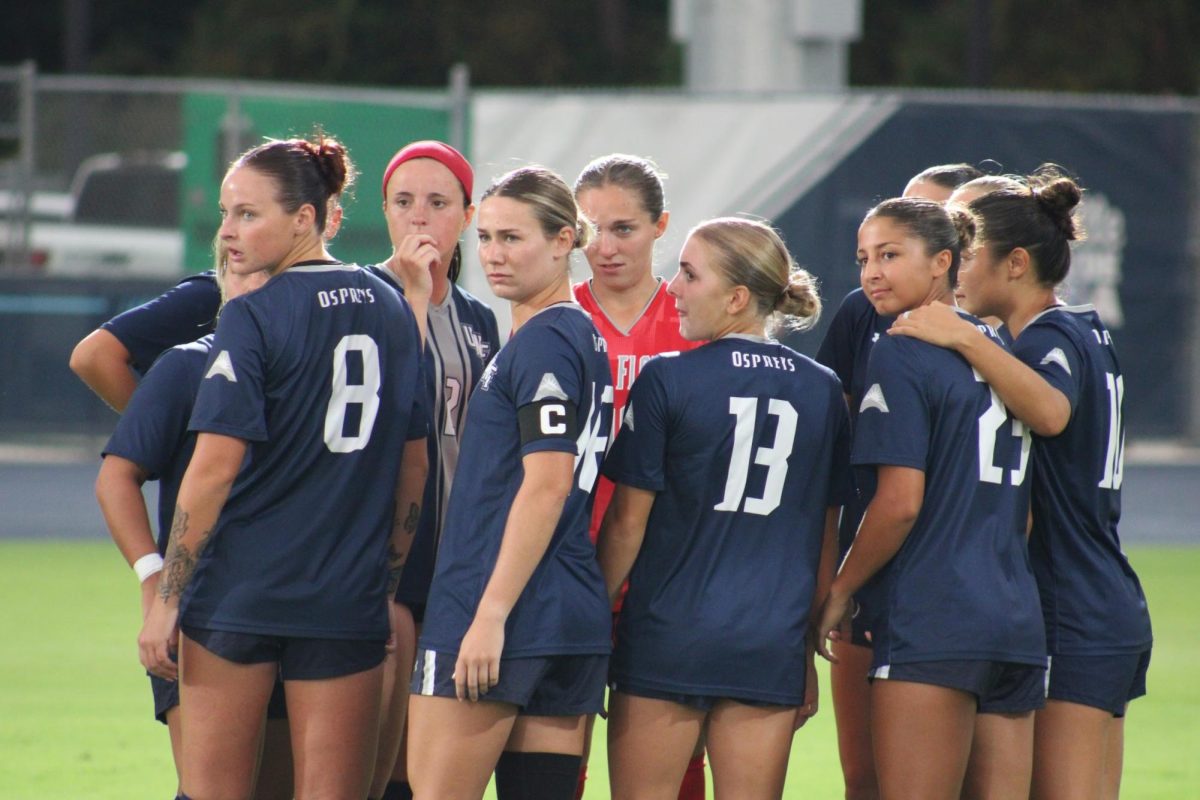College is touted as a time to expand oneself and learn to empathize with other cultures; there was information and opportunity abound looking to fill these desires at the Sept. 22 Study Abroad Fair.
There are three ways to go about it: faculty-led, exchange programs and through private third parties, said Tim Robinson, director at the international center.
Abroad study with faculty
Faculty-led programs are shorter expeditions that professors plan and promote to students. They last from one to six weeks and usually fall on spring break or during the summer.
The university has to approve faculty-led programs, and 12 have already received a green light. There are still 24 more awaiting approval, but the school usually approves between 25 and 30, Robinson said.
Since the UNF professors lead the excursions, students get credit directly, instead of transfer credits from other colleges.
“[UNF] doesn’t make any money off of faculty-led programs. Charges are put on a student’s account, and if there is any money at the end, we disperse it back to students,” Robinson said.
About 80 percent of UNF students who study abroad go on faculty-led trips, he said.
“Many countries require some kind of language proficiency, and it’s tough to get upper-level classes if you don’t speak the language,” Robinson said. “Going with a professor lets you take a course that is tailored for UNF students.”
Exchange programs are another option, allowing students to study abroad for a semester with room and board at a host school. UNF sets up a placeholder class for financial aid purposes, but the students actually receive transfer credits from the host school, Robinson said.
Non-UNF related opportunities
Third-party programs have no affiliation with the school, but students can still consult advisers about the courses they take abroad.
Deadlines are pretty fluid, because host schools and third parties set their own deadlines, which can vary depending on the host country and program, said Study Abroad Coordinator Uli Decker.
“The good thing is, third-party programs are profit-makers, so they will often extend deadlines to get more students,” Decker said.
Third-party programs at the Study Abroad Fair ranged from single universities to inter-continental umbrella companies.
Overseas internships
The company International Internships focuses solely on internship opportunities for students or those who have recently graduated. Applicants can work for credit or experience.
The programs coincide with university semesters, and the deadline to apply is usually about five months before the trip, according to representative Christina Johnson.
“Study abroad is just going to class, and while you get the immersion and cultural contact, this program gives you an edge. You demonstrate that you can work in and international and multicultural environment,” Johnson said.
Internship programs appeal to business-oriented students and those who wish to work abroad after graduation, she said.
“I’m looking to do an internship in the fall,” said UNF junior international business major Joanna Miranda. “I want to go to New Zealand or Australia maybe. I have to go over the books, but there were definitely a few [programs] that stood out.”
Immersion programs were also prevalent among companies. Students live and study in a country for one or two semesters, splitting academic efforts between their area of expertise and learning the native language.
“I want to get as far away from American culture as possible. India seems to be calling me, so I’m doing an immersion program over the summer,” said Justin Crandall, UNF junior education major.
Studying abroad requires some initiative and planning, but with financial aid and some available scholarships, students make it affordable. Robinson said that students should start planning as early as possible.
Any student can get more information at the International Center’s offices in Building 58E, room 2300.















